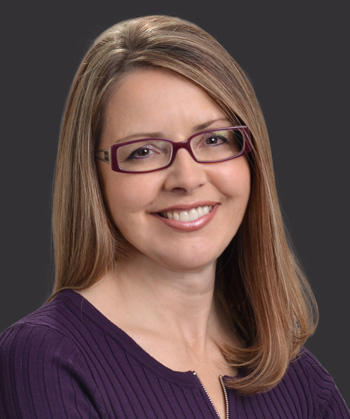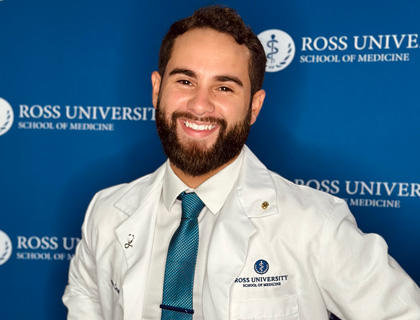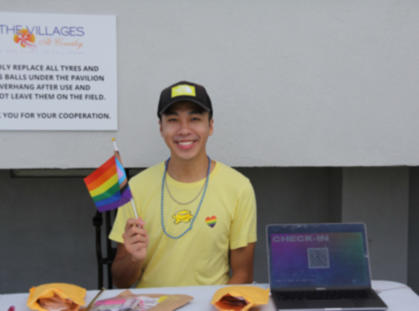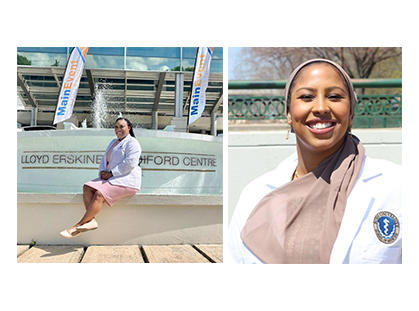Daily life now resides at the corner of twilight zone and apocalypse, complete with a crash course in healthy childhood habits — washing hands, social etiquette and being kind to others. When these remedial directives are coupled with ongoing trepidations, they create a firestorm of unpredictable behaviors. Those basking in boredom, frustrated with restrictions and grieving from social isolation now become easily triggered and the results can be catastrophic. In short, the current climate of COVID-19 and racial tensions is cultivating a perfect storm — where bullies come alive.
“When we feel we are struggling to survive and resources feel scarce, narcissism is being triggered,” explained Laurie Helgoe, PhD, associate professor of behavioral sciences at Ross University School of Medicine (RUSM), who specializes in personality theory and the relationship between personality and culture. She is a renowned author of several books including FRAGILE BULLY and was recently quoted in The Wall Street Journal. “We have all probably engaged in situational narcissism such as cyberbullying, feeling justified due to the ‘idiocy’ of a comment or a position. What we do in response is often the very thing we hate about the comment or position — we strip it of its context, complexity and humanity.”
The last few months of uncertainty have interrupted academic progress, restricted or eliminated group activities, and expanded unemployment. All these factors contribute to bored adolescents and adults taking to social media channels that are already riddled with negative reactions and attacking language.
It’s Healthy to Break from Social Media
“During this time of polarization, we begin to have conversations in our heads, and we develop stories that we think are true because we’re living in an echo chamber. Then we react to something that hasn’t happened,” Dr. Helgoe said, adding that this behavior can result in bullying tactics. “We have to disengage from these toxic forums that lure us in for the entertainment of it. This may require starving our narcissistic tendencies, checking the desire for cheerleading for our posts, because what we get back is shallow and lacking the real affection we crave — the real human nourishment.”
While it may be easier said than done, Dr. Helgoe encourages self-discipline — resist reading posts, block toxic people, hide certain content and avoid social media altogether during vulnerable times, which is now a constant. She suggests replacing the social-media reflex with a visit to an art and culture app or to listen to someone who is inspirational.
The Second Pandemic
The other public health crisis plaguing our world focuses on longstanding racial disparities and the toll it is taking on our Black communities. Amidst the crisis, the call to action is real, but the path is fraught. “When there’s ranting and raving, no one can hear you,” Dr. Helgoe explained, providing questions to ponder before participating. “Now that we all have limited energy, is it worth your time and effort to engage in this Facebook argument? Are you putting good energy after bad outcomes? Is there somewhere else you can better put your energy where the rewards will equal what you put in? This doesn’t mean putting your head in the sand; it means focusing on places where you will be heard and have an impact.”
The answer to a popular question of late — ‘are you racist?’ — has been met with mixed reactions, which sometimes exposes the fragility that fuels bullying. “When someone is being confronted on behavior, it is a human reaction based in narcissism that says, ‘I cannot be challenged. I cannot be one of these people.’ When the answer should be, ‘Yes, I am vulnerable to being racist. I will probably slip up and say something wrong and I will need education on an ongoing basis.’ That humility is not part of the narrative in American culture. There is a reinforcement that the idea of educating me conjures up shame; it means I’m a horrible person with a shallow foundation. Gaslighting is a way of deflecting this threatening self-awareness, instead implying that something is wrong with the other person’s perception of reality. Defensiveness comes from a knee-jerk need to defend my virtue at all costs, even if I have to invalidate your reality to do so.”
Keep an Open Mind
To change the narrative, both sides need to begin the uncomfortable conversations in a diplomatic way, leaving pride and defense tactics at the door. A humble beginning with non-judgmental reactions can go a long way. “We all need to start with cultural humility. Our Black neighbors are the ones who are always told to be humble and not to fit the stereotype but they’ve carried those restrictions for so long and they’re tired of having to always be the one stretching themselves. We need to become allies and say, ‘I’m a member of the privileged majority and I want to try and understand an experience that I have not shared.’”
Dr. Helgoe suggests the non-Black person enters the conversation with a readiness to be surprised, removing biases; to listen instead of defend; and to seek to understand if it’s not relatable. She said these discussions may be harrowing but to succeed, they need to happen in a safe place — not a public forum like social media — and when both parties can be attentive, vulnerable and compassionate, all characteristics not found in a narcissist.
With a true bully, Dr. Helgoe said you will not win but rather ping-pong in a ‘wargame,’ stuck in a derogatory feedback loop. “We get hooked into bullying because we want to ‘one up’ the bully. It becomes a vicious cycle. Sometimes we want to fix the bully — reform him. Other times we want to gain his approval or support because he holds power. We’re all prone to bullying when we’re vulnerable without even knowing it. We use unfair tactics to insult or demean someone because we’re defending ourselves. As concluded by the supercomputer in the movie WarGames, when you’re playing with a bully, ‘The only winning move is not to play.’”
About Dr. Helgoe
Joining RUSM almost four years ago, Dr. Helgoe said she “fell in love” with her new education community, even as she started teaching on a ship off St. Kitts, due to the destruction to the school’s home in Dominica, then moved to a temporary location in Knoxville, Tennessee and finally to its current home in Barbados. She taught and supervised psychiatry residents at the West Virginia University School of Medicine when she discovered her passion for collaborating with medical students committed to their journey. Dr. Helgoe also wanted to serve as a leader in behavioral science and to promote mental health and wellbeing, not only for patients, but for the too-often burned out students, residents and physicians dedicating their lives to the care of others.
“Ross University allowed me to bring together what I love to do — teaching, clinical skills training and mentoring. And they have supported me in my passion to integrate Mind-Body Medicine into our training, helping students and future physicians become more resilient to stress and burnout while increasing their ability to respond to the emotional needs in themselves as well as their patients.”




